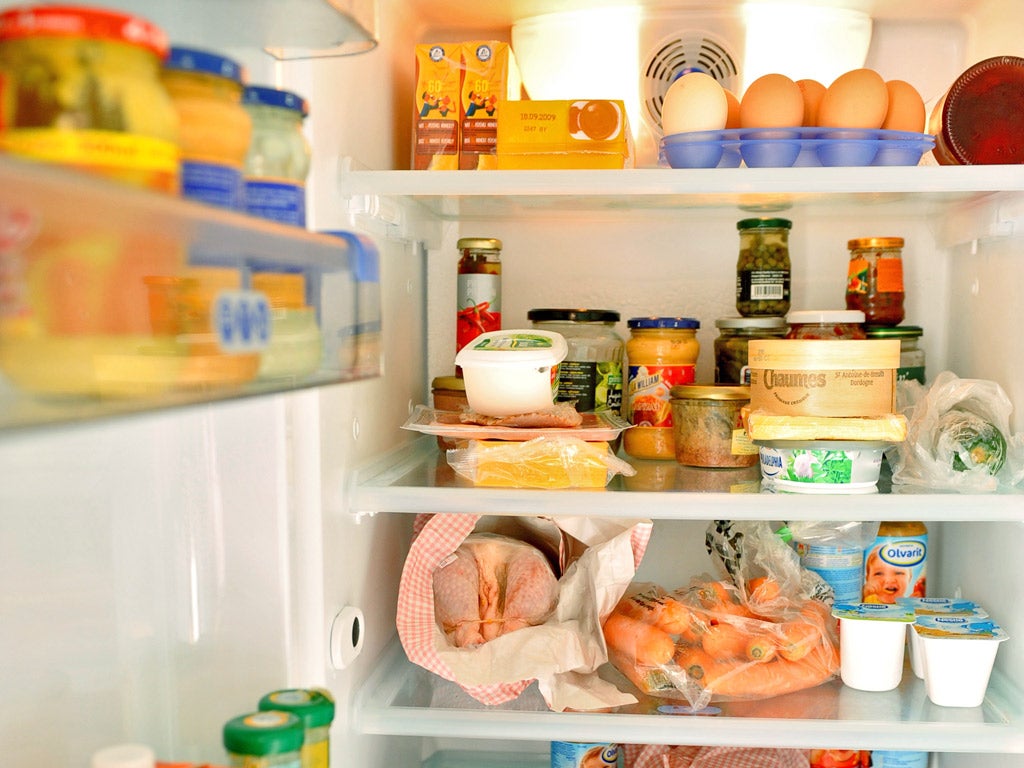We're throwing out less food – but still too much

Your support helps us to tell the story
From reproductive rights to climate change to Big Tech, The Independent is on the ground when the story is developing. Whether it's investigating the financials of Elon Musk's pro-Trump PAC or producing our latest documentary, 'The A Word', which shines a light on the American women fighting for reproductive rights, we know how important it is to parse out the facts from the messaging.
At such a critical moment in US history, we need reporters on the ground. Your donation allows us to keep sending journalists to speak to both sides of the story.
The Independent is trusted by Americans across the entire political spectrum. And unlike many other quality news outlets, we choose not to lock Americans out of our reporting and analysis with paywalls. We believe quality journalism should be available to everyone, paid for by those who can afford it.
Your support makes all the difference.British households are throwing away a lot less food than they were four years ago – but they're still wasting millions of tonnes of it every year, new figures reveal.
The amount of household food waste has dropped by 13 per cent, or 1.1 million tonnes, since 2006-07, when the first major survey was done, according to the Government's Waste & Resources Action Programme (Wrap). The waste saved would be more than enough to fill Wembley Stadium.
Wrap's figures, based on data from 90 local authorities and released at the organisation's annual conference yesterday, indicate that the recession and falling incomes may have played a part in the food-waste reduction.
Much of the fall appears to have come from households not buying as much food as they were three or four years ago. "Our research has shown that increased food prices and difficult economic conditions have almost certainly contributed," Wrap said.
Retail commentators said that customers spending less and planning their shopping more carefully is likely to have contributed to the fall, as well as supermarkets providing more information and offering a wider range of portions, such as half-loaves of bread.
The drop (measured in 2010) is from 8.3 million to 7.2 million tonnes and what remains is 19 per cent of the 38 million tonnes of food and drink brought into UK homes. This is worth £12bn, or £680 per year for the average family with children. That would still be enough to fill Wembley nine times.
About 60 per cent of what is still being thrown out is made up of waste that could be avoided. Wrap estimates that people could avoid throwing away up to 5.8 million tonnes of the food waste.
Had the reduction in food and drink waste not occurred, consumers would have been spending at least £2.5bn a year more. Wrap's chief executive, Dr Liz Goodwin, said the lower amount of food being thrown away was "very welcome", but more still had to be done.
"Despite the reduction, the food we waste in homes, which accounts for about half the UK's food waste, is still worth £12bn a year as a result of food-price inflation and the food that is being wasted throughout the supply chain is significant, at a time when food security is a major global issue," she said. Wrap said the reduction had saved councils £80m a year – by sending less food to the tip they incur lower landfill charges.
The greenhouse gas emissions associated with the manufacture, distribution, storage, use and disposal of wasted food was 17 million tonnes, down from 20 million three years earlier.
Join our commenting forum
Join thought-provoking conversations, follow other Independent readers and see their replies
Comments